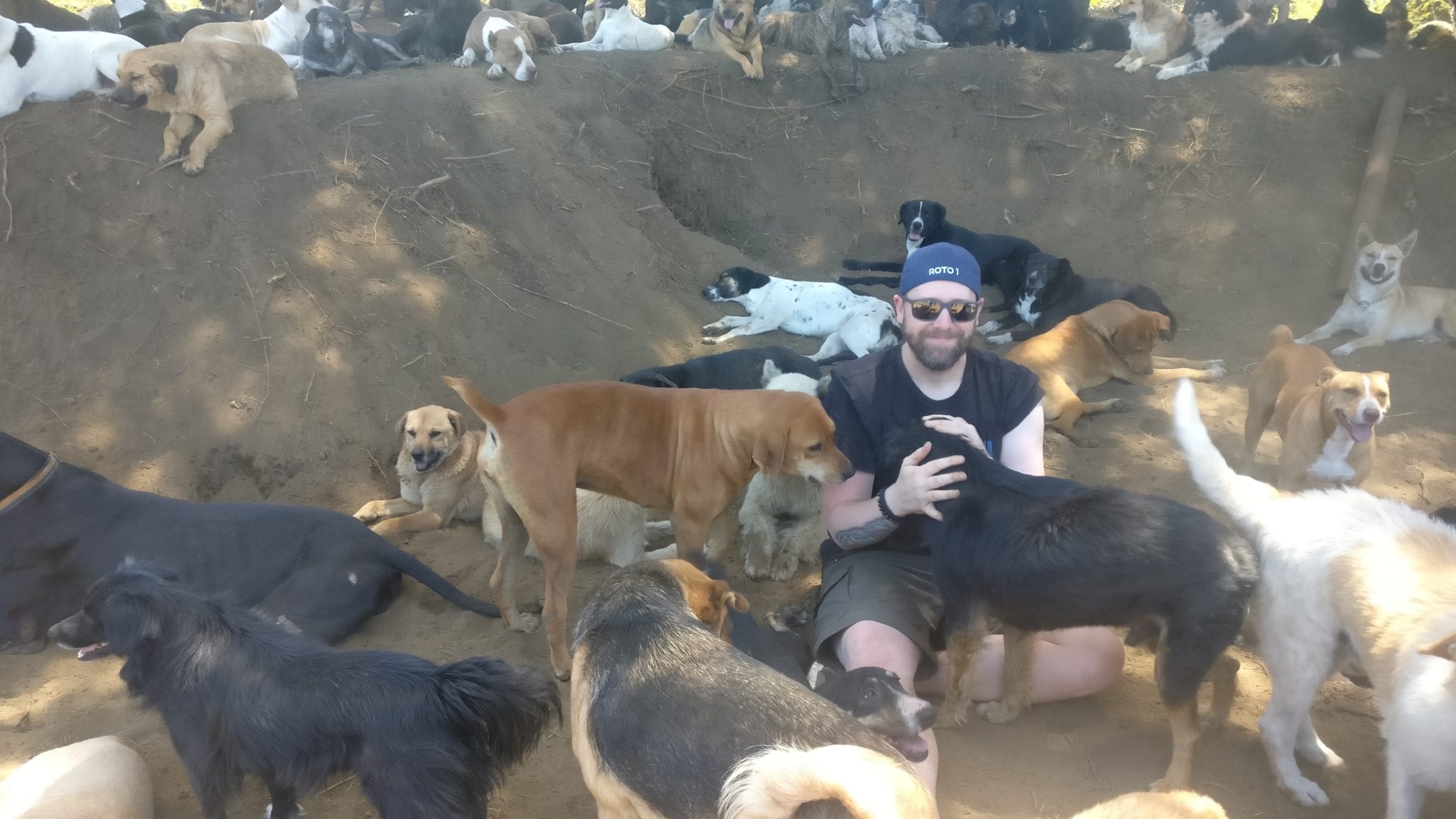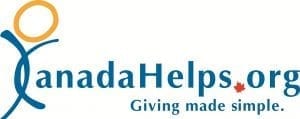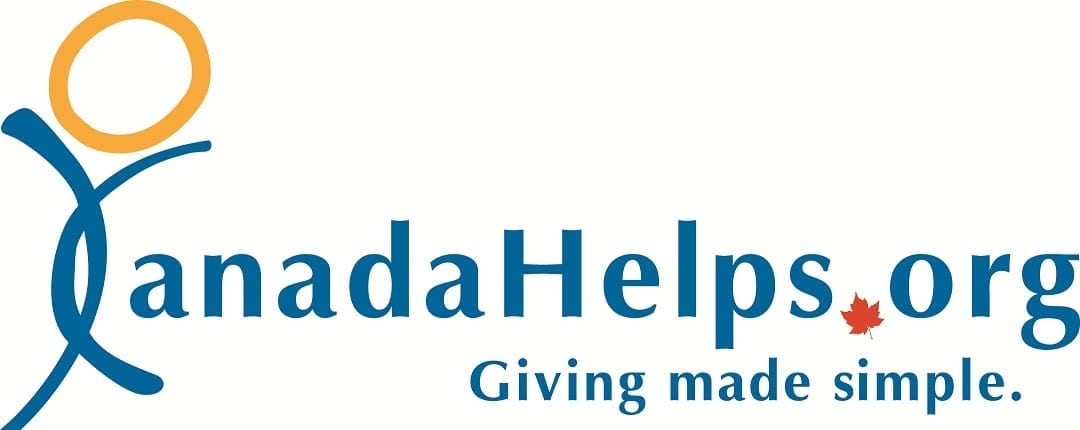Dave Walker is a veteran of the Canadian Armed Forces with 10 years in the military as a medic. He has served overseas and was diagnosed with PTSD in 2006. It has been a long journey for Dave since his diagnosis and he has worked to overcome all the challenges which come with dealing with mental health.
Dave was introduced of Camp Aftermath by his psychologist, who thought he could benefit from Camp Aftermath’s curriculum and intent.
Camp Aftermath interviewed Dave while on Phase 2 of Roto 1, in Costa Rica on 11 March 2018.
Camp Aftermath (CA): What are your thoughts on the program so far?
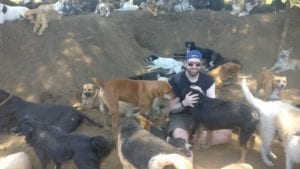
Dave volunteering at Territorio de Zaguates dog sanctuary in Costa Rica
Dave Walker (DW): This phase right here in Costa Rica has been the best experience of my life. I will forever remember it. This experience has helped me get through obstacles without the use of chemicals (pharmaceuticals), which has resulted in me viewing things in a different perspective and beginning to enjoy life again.
CA: Can you explain why Camp Aftermath has had such a profound effect of you?
DW: This experience has helped me look inwards and stop counting something outside of me to control how I feel. Now I know if I want to move forward in a positive manner, I need to be okay with being vulnerable with my family and those who are trying to help me. I think that has been my biggest breakthrough thus far, to be open amongst my peers and Camp Aftermath staff and mental health experts.
CA: What are your thoughts on the volunteerism aspect of the itinerary thus far?
DW: To be honest, I have never volunteered before. I can tell you that when I get home, engaging in volunteerism is going to be my top priority. Helping someone (in La Carpio, Costa Rica) has given me that warm feeling one gets when doing meaningful work. To see the look in the people’s eyes, to see the outcomes from the work that we have been doing out here, to work with the Costa Rican people and feel connected to them through hugs and sharing laughs, it has been an amazing experience. I cannot wait to go home and find a way which I can continue to gain this feeling.
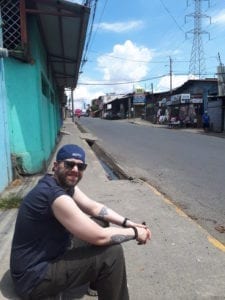
Dave in La Carpio, Costa Rica
CA: Can you speak to the positive habits which the itinerary has been exposing you to?
DW: I have really enjoyed waking up early, meditating and doing yoga. Eating right has had a positive effect on me and going to bed at a good time has reminded me how it feels to wake up well rested. I have to also say that constantly connecting to other people has been huge to me. I understand now that I need to stay connected in order to be happy.
CA: What is your biggest takeaway from this experience thus far?
DW: Right now, I feel like I can do anything I want to do if I put my mind to it. That I have the power to do so. I cannot thank the staff enough for what they have done for me.
CA: What are your thoughts on Phase Three of this program, which entails the one year follow up after Costa Rica?
DW: I have enough experience going through such programs to know that there will be a crash when I go back home. I am really happy that Phase Three will be there to help manage the emotions that come with that. I am also looking forward to keeping the momentum and positive habits by remaining connected via our weekly video teleconferencing meetings for the next year. Staying connected will be key for me.
______________________________________________________________________________________________________________________________________
How you can help
There are currently many amazing programs that focus on helping veterans and first responders suffering from PTSD. If you believe in our cause, please help us make a difference in the lives of five military veterans and first responders slated to experience our three-phased program in early 2019. You can donate to our campaign on Canada Helps.

